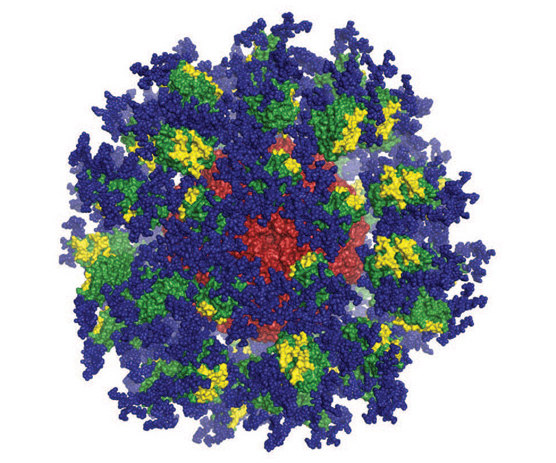March 2, 2024
IAVI statement on mRNA HIV vaccine candidate trials
Response to Science news article.

IAVI is currently in the process of finalizing and submitting a manuscript for publication of the results of the IAVI G002 clinical trial. The forthcoming publication will describe in detail both the immune responses and the safety outcomes observed in the trial.
On March 1, Science published a news article about skin events observed in recent HIV vaccine clinical trials evaluating a “germline-targeting” approach to HIV vaccine development, including IAVI G002. IAVI G002 is designed to test the hypothesis that sequential administration of priming and boosting HIV immunogens delivered by messenger RNA (mRNA) can activate specific naive B-cells and guide their early maturation toward broadly neutralizing antibody (bnAb) production.
IAVI, Moderna, the HIV Vaccine Trials Network (HVTN), the National Institutes of Health (NIH), and the Bill & Melinda Gates Foundation — all partners in trials of mRNA-based HIV immunogens — are committed to the safety of trial participants and the highest standards of conduct in our trials.
IAVI and partners have observed that skin events occurred in 7%-18% of the volunteers who received the investigational products across IAVI G002 (NCT05001371), IAVI G003 (NCT05414786), and HVTN 302 (NCT05217641). It’s important to note that none of the studies had control arms, which would have helped clarify the actual frequency of skin events that are associated with the specific vaccine candidates studied.
The affected volunteers in the trials had skin events that were described as hives, itchiness, or hives caused by scratching. Most of these events were mild or moderate, and managed with simple allergy medications. There were no serious adverse events reported. Participants who experienced skin events were provided all medical care necessary and were monitored closely.
IAVI and partners are actively working to investigate the potential causes of these skin events. We have brought in an interdisciplinary team of external experts, including allergists and immunologists, to further assess the skin events. In the interest of transparency and clarity, IAVI and partners have presented preliminary data on immune responses and safety at scientific conferences and look forward to continuing our discussion of these results. Communicating details about the safety and immunogenicity of our vaccine candidates in a clear, timely, and transparent way is a top priority for IAVI and our partners.
The skin events observed in the trials were not observed in an earlier trial that evaluated a recombinant protein version of one of the immunogens used in IAVI G002.
Mark Feinberg, M.D., Ph.D., IAVI’s president and CEO, said, “IAVI is encouraged by the very favorable immunogenicity results seen in IAVI G002 and related trials, which will be published in forthcoming papers. We look forward to continuing our pursuit of proof-of-concept for the elicitation of broadly neutralizing antibodies against HIV via the defined sequential germline-targeting immunization strategy, while working to better understand this safety signal and identify approaches to mitigate it. We will continue safety and immunogenicity studies of scientifically promising immunogens that we hope will be part of a much-needed HIV vaccine.”